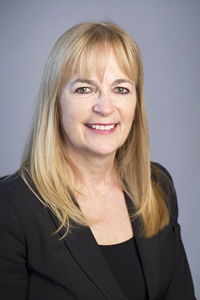Scientists need our help to end AIDS
 Maxine Davis is executive director
Maxine Davis is executive director
of Vancouver's Dr. Peter AIDS Foundation.
1 August 2014 - The 2014 International AIDS conference in Melbourne, Australia has come to a close but it
will be seared in our memory as the year of the tragic loss of leading HIV/AIDS researchers and health care leaders on their way to the
conference.
The conference heralded a new goal, the end of AIDS by 2030. Scientists studying HIV/AIDS have been unrelenting in their
dedication to ending AIDS and HIV. While they have not yet succeeded in finding a cure they have presented to the world over the years
effective ways to achieve the end of AIDS and the end of HIV, which causes AIDS.
There's been the scientific means but not the societal mobilization to act on the science. Locally and globally, we
could by now have made far more progress in ending AIDS and HIV. At the root, is the still-present stigma and discrimination
experienced by people living with HIV/AIDS, compounded by stigma and discrimination due to sexual orientation and gender
identity, and marginalization due to extreme poverty, homelessness, mental illness, and addictions.
Scientists discovered, in earlier years of the epidemic, that condoms prevented HIV transmission yet there's still religious
and cultural taboos about condom use; scientific research - also in earlier years - discovered that providing injection drug users with
sterile syringes and other injection equipment would prevent HIV transmission, yet some countries - and even some Canadian
municipalities with the urging of citizens - have banned syringe distribution; scientists have shown that providing
supervised injection service as part of health care for injection drug users reduces HIV risk behaviour, in
addition to other health benefits, yet various levels of government and citizens have raised road blocks
to this service being available to individuals who need it.
British Columbia's HIV/AIDS scientists and their global colleagues have discovered in recent years the most remarkable holy
grail of HIV prevention: HIV treatment itself. British Columbia was the first government to implement treatment as prevention. Many
governments, including Canada's, have not been seized with the same leadership to act despite knowing access to HIV treatment
can mean a new lease on life, that it turns off the tap on new infections, and there's recognized long-term health care cost savings.
Saving people living with HIV from dying of AIDS is not enough; we have the ethical duty to honour them with dignified lives.
The vulnerable population of this city, this province, this country, who are living with HIV - those with serious mental
illness and addictions, who are homeless or have unstable housing, and are seriously malnourished - need far more than HIV medication
every day to be healthy.
The Dr. Peter Centre's 24-hour specialized HIV/AIDS nursing care residence has not had a resident die solely of
AIDS-defining illnesses for some years. However, they are still dying earlier than the general population because their
health is compromised by serious medical conditions made more complex with HIV.
In the 90s, Vancouver's public health officials conducted a study to understand their limited success engaging people
living with HIV in the Downtown Eastside in HIV treatment, despite medication being widely available in the area. The feedback was
so striking the consultant titled the report, All I want is food to eat, a roof over my head, and somebody to give a damn.
Recently, Bill, one of our residents shared his sad perspective that "It's not easy to care about people like us so I'm
very grateful for everyone who does."
People of this city are compassionate and care about Bill, and others who desperately need help to be as healthy as possible
living with HIV, and Vancouver has been a leader in progressive social responses to HIV/AIDS.
Vancouver will play host in July, 2015, to the International AIDS Society Conference on HIV Pathogenesis, Treatment and
Prevention.
There is still much to be done here and abroad.
I ask you to show you give a damn by supporting societal efforts to put the work of the world's HIV researchers into
practice and end AIDS and HIV sooner rather than later.
###
For more information, visit www.drpeter.org
"Reproduced with permission - Dr. Peter AIDS Foundation "
Dr.Peter AIDS Foundation
|